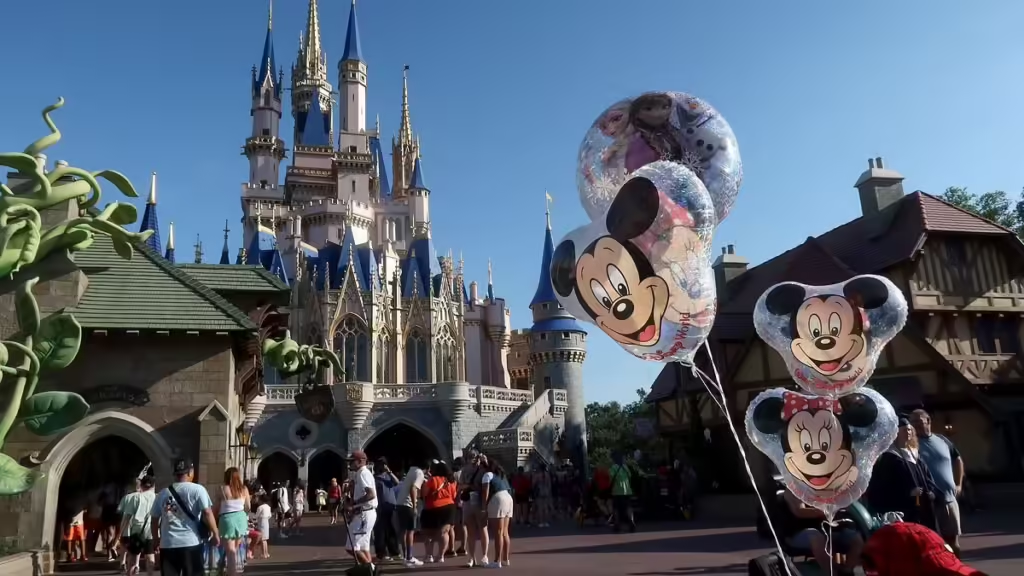A terabyte of sensitive information from over 10,000 Disney Slack channels was released by a hacktivist organization called Nullbulge, according to a recent Wall Street Journal article. Sensitive conversations concerning computer code, commercial campaigns, unpublished projects, interview candidates, and more are among the items in the leaked material. Disney, according to a representative, is looking into the security issue and is treating it seriously.
Nullbulge, a hacktivist group that advocates for artists’ rights, claimed responsibility for the breach. The group targeted Disney due to concerns over the company’s handling of artist contracts and its approach to generative AI. For weeks leading up to the major leak, Nullbulge teased its access to Disney’s Slack channels by posting snippets of confidential information on X, the platform formerly known as Twitter. These teasers included details like attendance figures for Disneyland parks, signaling the group’s extensive access to Disney’s internal communications.
The method by which Nullbulge gained access to Disney’s confidential information was particularly insidious. According to their spokesperson, the group compromised an employee’s computer on two separate occasions. They achieved this by embedding malicious software in a seemingly innocuous video game add-on. This malware allowed them to infiltrate the employee’s system and, subsequently, Disney’s internal Slack channels. This breach underscores the importance of cybersecurity, especially in large corporations that handle vast amounts of sensitive information.
Disney’s reaction to the breach has been swift. The company is conducting a thorough investigation to determine the full extent of the data leak and to identify the vulnerabilities that were exploited. In addition to assessing the immediate damage, Disney is likely to implement more stringent cybersecurity measures to prevent future incidents. The company’s spokesperson emphasized their commitment to protecting both their intellectual property and the privacy of their employees and partners.
This incident highlights the ongoing tensions between technology companies and the creative community regarding the use of generative AI. For more than a year, these tensions have been escalating as artists and creators have accused corporations of using their work to train AI models without proper consent or compensation. Generative AI, which refers to algorithms that can create new content such as images, music, or text, has been a contentious issue. Artists argue that their work is being exploited to feed these AI systems, which then generate content that can potentially replace human-created art, often without any credit or financial benefit to the original creators.
Nullbulge’s actions reflect a broader discontent within the creative community. The group’s spokesperson articulated their concerns, stating that large corporations like Disney are not only mishandling artist contracts but are also leveraging AI technology in ways that undermine the value and rights of individual artists. This sentiment is echoed by many in the creative industry who feel that the rapid advancement and deployment of AI technologies are occurring without sufficient ethical considerations or protections for the creators whose work makes these advancements possible.
The use of AI in creative processes is a double-edged sword. On one hand, it offers unprecedented opportunities for innovation and efficiency. On the other hand, it raises significant ethical and economic issues. The core of the controversy lies in the training data used for these AI models. Typically, AI systems are trained on vast datasets that include a wide array of human-created content. Without clear consent and fair compensation mechanisms, artists see this as a form of exploitation.
The fallout from the Disney breach may have wider implications for how companies handle their cybersecurity and their engagement with the creative community. It serves as a stark reminder that even the most robust security protocols can be vulnerable to sophisticated hacking efforts. Moreover, it highlights the necessity for a more equitable approach to the use of AI in creative industries.
As the investigation unfolds, Disney will likely face increased scrutiny not only from a cybersecurity standpoint but also regarding its practices around artist contracts and the use of generative AI. The company’s response to these issues will be crucial in determining its relationship with the creative community moving forward.
A number of persistent problems at the nexus of technology, security, and creative rights are highlighted by the noteworthy Nullbulge breach. It is a call to action for businesses to review their ethical standards around the use of AI and artist pay, as well as their cybersecurity safeguards. The future terrain of creativity and technology will be greatly influenced by how these problems are resolved.
If you like the article please follow on THE UBJ.
